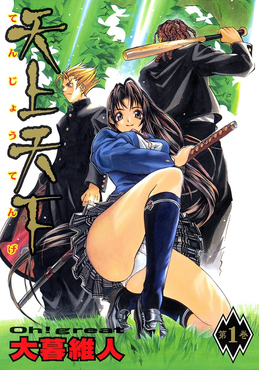How's it going lurkers? Since I am an unpublished author, I thought I would give some input about writing stories. It is common for writers to always want to write novels.
Personally, I feel more writers should invest their time in writing short stories.
Writing short stories is a great way and usually a gateway for writers to have their work discovered.
Imagine having your own short story added to an anthology with numerous authors. Most English teachers and professors require students to read anthologies of short stories. Then, teachers and professors want their students to analyze the author's work.
Authors with short stories in anthologies are the equivalents of mainstream and unknown talent that are being featured on TV and movie soundtracks.
Throughout my adolescence and early 20's, I loved frequenting local music stores to buy soundtracks. It was an excellent way to expose new, undiscovered, and unaired talent.
Whenever I found a certain musician(s), that I really loved on a soundtrack, I searched for more songs by him/her/them. Then, I would buy that particular musician(s)' albums.
Now, apply that same concept to short stories being published in anthologies.
It would be better if more writers tried taking baby steps by writing short stories rather than rushing into creating novels.
Even though I have never written any novels, I have written at least 6 short stories. About 3 are bound yet unpublished at Carthage College in It's Not All Bunnies And Sunshine (my chapbook).
It would be fantastic to not only have my work self-published, but also be featured in anthologies.
Maybe I will submit at least 1 of my 6 Short Horror Stories to be featured in the next Horror-Punks anthology.
If you are asking yourselves, "Did she just name drop Horror-Punks.com?"
"Hai!" In case you're wondering, that means "Yes" in Japanese.
For some reason, most seem to overlook writing short stories and being published in anthologies.
I can't help reiterating, that authors would highly benefit from having their short stories discovered in anthologies besides publishing a novel.
Schools require students to read short stories. At least I was required, during my youth.
Throughout 1st-12th grade and college, my teachers and professors required us to read short stories besides reading novels.
Considering my short stories' graphic content, they would probably be shared in College English courses. Adult readers between 18 to 57 years old are my target demographic.
Minors probably would not understand 1/2 my short stories and aren't guaranteed to grasp the big picture. On the other hand, my work alone would probably be banned from certain grade levels.
Most of my short stories can be considered Horror, Psychological Thriller, and Semi-Fiction. Sometimes I also write Realistic Fiction.
Here is a YouTube vlog created by PowToon. This animated vlog gives examples, which help to explain Realistic Fiction.
Realistic Fiction Genre
The Realistic Fiction video mostly shows novels as examples. If more writers want to learn about writing short stories, watch George Wier's vlog below. Wier goes into more depth about writing stories.George Wier Explains How To Write Short Stories
When George Wier mentioned 30-50 pages for a short story's page length, it seemed more like he was talking about writing either a novelette, or a novella.
While creating my own short stories, maintaining an even balance of narration and dialogue is usually the biggest challenge(s) I sometimes face, besides avoiding as many cliches as possible.
Some cliches can be used to a writer's advantage, whereas some are complete overkill.
In these last 2 vlogs, Ellen Brock gives strategies about showing rather than telling in stories, and the 5 mistakes made by amateur writers.
1) Ellen Brock Demonstrates Showing VS Telling Stories
2) Ellen Brock Lists 5 Biggest Mistakes Amateur Writers Make
What do you think about the preceding vlogs?Hopefully, these vlogs were beneficial to every writer! Let me know what you think!







